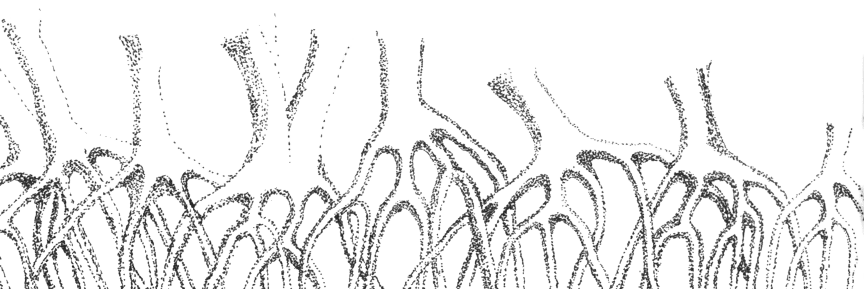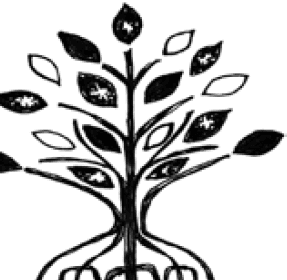This Graceful Fall, this Scattering
Lawrence Lacambra Ypil
There was a letter that Marj sent to me when I was still a medical student in the PGH and living in a small apartment on Gen. Malvar St. in Malate that, for one reason or another, never arrived. It might have contained some of the poems Marj had been working on at that time, or it may have contained her comments on poems I had sent her perhaps a few weeks back. Or it may just have been a letter—— Marj loved to write letters, in her exquisite fountain pen penmanship, one I could easily still recognize decades since I have last received a letter from her by mail.
Maybe she got the address wrong. Or perhaps I had been the one that had given her the wrong one. Or maybe, I remember now, she had given it to a common friend who might have misplaced it somewhere and left with no Philippine postal service to rant and complain to. It felt suddenly inappropriate to throw a fit at the honest mistake of misplacement by a common friend.
I don’t know if Marj remembers this. I don’t know whether I very quickly let this incident slide or, as I was wont to do, harbor an unexpressed resentment at what was otherwise the fault of circumstances. I wanted that letter. I wanted it to arrive. I will never know now what Marj would have liked to say.
I first met Marj in the Ateneo writing workshops, where she was a regular and a favorite panelist. Together with the other young writers, we were drawn to what I would later realize was her Virgo sense of care and order. She always had an elegant way of saying things, so even if we all knew that our poems were being skewered at the table of poetry, the care, grace, and generosity with which this was done was worth the pain. We all felt it was part of the rite of passage any young writer needed to go through. We eagerly awaited the copies of our poems where she would write her comments in her beautiful handwriting, and this always seemed like evidence that in spite of everything that had been said, we would survive, and we would move towards writing the poems that we were meant to write.
These were the years leading up to the publication of Marj”s Ochre Tones, so I also remember first listening to her recite these poems in the deep evenings of those workshops and then eventually holding a copy of the book and reading them quietly. Marj’s poetry always held the sensual wisdom of the world. They took you far. And they took you deep. But they also took you near, very near— they invited you to taste tenderly the fruit one held in one’s mouth, to catch that flash of blue on the wing of a bird’s flight, to understand the tenderness could be a kind of painting of a scene signifying somewhere else. The world was always here but simultaneously somewhere else, and poetry was a way of bridging that gap and honoring the distance between memory and imagination.
Marj’s poetry also taught me something vital about order. The way a stanza could be honed fine like polished wood, or the way a line could sharpen so it could hurt. Point and counterpoint, Silence and song. Mystery being a kind of well-crafted balance between the said and the unsaid, with all edges clipped and folded to a point. And while I would eventually find myself boldly resisting such order and balance in my work, opting instead for a kind of messy, moldy, asymmetrical, disharmonic, lopsided aesthetics in my own work that would have merited a tsk, tsk, tsk from Marj if I had shown them at that time, there was something entirely necessary in that initial encounter with order that I would find in Marj’s work that I know now in retrospect I would have been entirely left bereft if I did not meet it head-on when I did then. Sometimes mentorship is wholly borne out of admiration, sometimes resistance. With Marj, it was thankfully and beautifully both.
I don’t know if this might be considered cheating, but for this festschrift, I thought I would share a very old poem of mine, written in those years when I first met Marj. She might have workshopped this poem. I may not have revised it well enough. And while I have always been wary of considering my mentors in the frame of parenthood (I always felt I had more than enough to contend with my own biological father and mother to want any more! ), perhaps it might be best to consider Marj, an aunt of sorts. Someone who shares our blood but a slightly different version of it. Who we see on special occasions and who we can have the frankest conversations we may never have with parents. They also give and give to us, but more often than not, we hardly get the chance to return the favor, except by paying forward: to other nieces and nephews and students and friends we may find. Or perhaps in rare instances like this. Where we’re allowed to say thank you in the ways that are most odd and that are most our own. So there is this. And here it is.
With Mom in the Garden
Lawrence Lacambra Ypil
And she starts speaking of sorrow.
How in Spanish
it comes in two forms: a man’s
and a woman’s, Dolorosa, I suppose,
for some domestic despair, the weight
of an unwanted child, the lonely waiting,
the empty house and you
looking out into a deserted street.
And how much different is it, I wonder,
from its “masculine” counterpart,
from a man crying for fatherhood
that will never be his, from the late hours
at some all-night pub where
intoxicated, half-sane,
a young boy drowns himself with beer—
the only way he knows
how to begin to cry, the only way
taught him, learned by him,
permitted by the men before him,
sad too but always seeming
unaffected, unscarred.
How different is it
from my sitting on this rocking chair
on lonely afternoons.
Petals from a tree beside use
continue to fall, one
or two every minute.
And it doesn’t matter to the ground
whether these flower-tears have with them
stamen or ovary.
They have petals shaped enough
to allow this graceful fall, this scattering.
And why should it matter to anyone.
They pluck themselves out
from a common source,
identical leaf-eyes, wrapped in cuticle,,
stuffed with restless chlorophyll:
maker of sweet sustenance,
core of our carbon
androgynous lives;
colored a genderless green.








